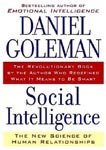Directly after resigning from Congress, Mark Foley (R-FL) made a public admission of alcoholism and checked himself into an addiction rehab program.
Foley's claim of alcoholism is not convincing a lot of people who knew him. One of his own colleagues, Rep. Peter King (R-NY) told Fox the claim is "a gimmick."
Source. Advocate.com, the LGBT website, quotes sources close to Foley as doubting that he had a drinking problem.
Source. From this perspective, Foley's quick public entrance into an alcohol rehab clinic was a convenient exit from further public questioning about his sexual advances to underage male pages.

True, as a psychiatrist pointed out to the press, many alcoholics manage to hide their addiction for fear of being stigmatized. But Foley had other stigmas to worry about. He was a closeted gay Republican -- but his orientation was an open secret in Washington and in Florida. He was also sexually interested in the male Capitol pages -- but this fact was widely known among the pages themselves and evidently at least some in the House leadership. Does the stigma of alcoholism carry a more painful sting than homosexuality and pedophilia, such that Foley would guard the secret of his drinking more closely than his other secrets? Hard to believe. Especially in Washington.
Foley wasn't alone in taking dubious refuge in alcohol rehab. Rep. Bob Ney (R.-OH) declared himself an alcoholic and checked into rehab last month hours after pleading guilty to corruption charges in the Jack Abramoff influence-peddling scandal.
The parallel has been a feast for skeptics. The Maine Morning Sentinel's editorialist observed that "
claiming an addiction becomes the last resort of the poorly behaved." Source. Another commentator thinks that checking into rehab is becoming standard procedure for cornered politicos.
Source.
Writer William Saletan had fun with this emerging pattern in Slate. Politicos in trouble should follow a 10-step program, he writes, including:
4. Call yourself an alcoholic. Foley adopts the label directly: "I am an alcoholic." This is vital, because when you're also a crook, anti-Semite, or pervert, "alcoholic" sounds so much nicer. Millions of people are alcoholic or love someone who's alcoholic. Embrace the label, and they'll embrace you. Roth adds a nifty twist to this maneuver, calling Foley "a closet drinker." Everyone knows Foley had a closet. The only question is what's in it. Booze is the least shocking answer he can hope to get away with. Source.
The conservative pundit Mona Charen also wasn't buying it. She wrote: "A fly on the wall of these treatment centers would doubtless discover that some of their celebrity clients are not alcoholics at all, but simply charlatans anointing themselves with alcoholism to wring sympathy from an infinitely forgiving public."
Source.
So, at least if you're a celebrity, the "alcoholism" label, far from stigmatizing you, makes you downright lovable.
NCADD, are you listening?
It's a perverse world. The huge majority of alcoholics who need treatment can't get it.
Source. Scarce and understaffed emergency detox centers have waiting lists.
Source. But for a handful of public figures, alcoholism treatment serves as a convenient moral refuge, a beggar's cup for sympathy, and a safe harbor from public inquiry.
P.S. A number of the commentators on Foleygate are mixing up his case with Mel Gibson's. While Foley's "alcoholism" seems too convenient to be true, there's no doubt about Gibson's bona fides in this department. See earlier blog posts
here and
here.
Carol McGruder (right), Director of the San Francisco African American Tobacco Free Project, has launched BlacksForProp86.org, a grassroots initiative of African American health professionals, researchers, clergy, tobacco control advocates and concerned community members to support the passage of Prop 86.
















